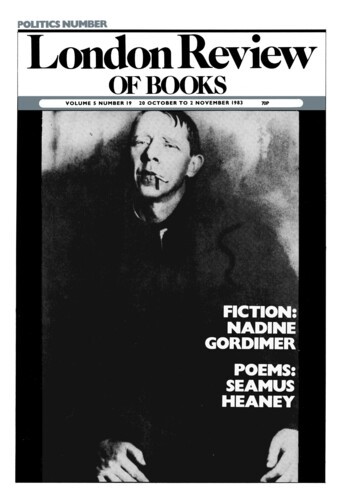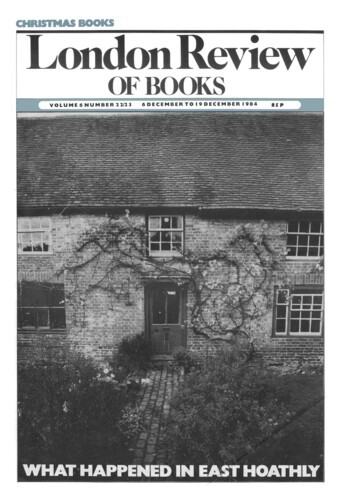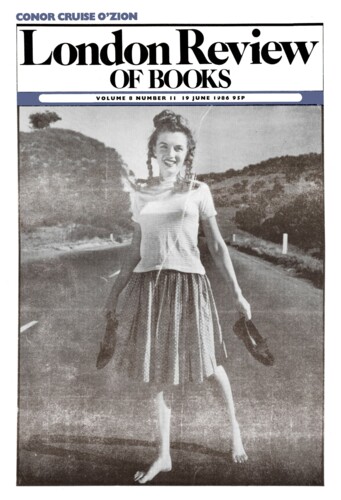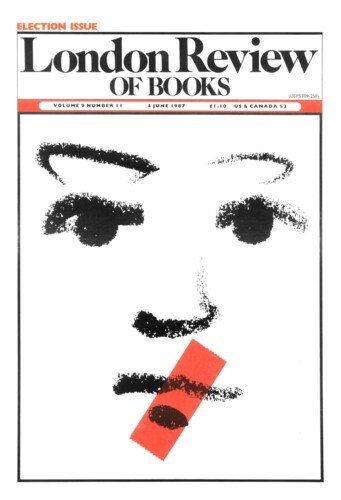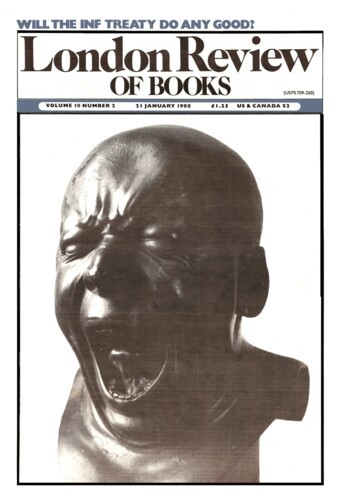Boys will be soldiers
Brian Harrison, 20 October 1983
Not to expose your true feelings to an adult,’ wrote George Orwell, ‘seems to be instinctive from the age of seven or eight onwards.’ This is only one of several difficulties facing the historian of childhood: children are secretive, and parents seldom suspect the range of their fears and excitements. Describing his rather tortured teenage life, Bertrand Russell’s autobiography stresses that while outwardly well-behaved, he ‘found living at home only endurable at the cost of complete silence about everything that interested me’. Barbara Wootton and her childhood friends went further, and fended off the adults by evolving a private language. Only the exceptional child writes down his experience, and adults rarely think about their childhood: indeed, most adults are adept at forgetting what it is like to be a child, though the occasional exceptions – Dickens, Orwell and Flora Thompson – sketch in the outline of this vast unexplored continent. Perhaps this is one reason why historians have so rarely written about childhood. And even if they do write about it – when discussing the history of education, for example – they often show the historian’s tendency to write history from above: that is, to see the school from the viewpoint of teacher rather than taught. Others find an escape-route through writing, not about childhood as it is experienced, but about adult attitudes to it.–
